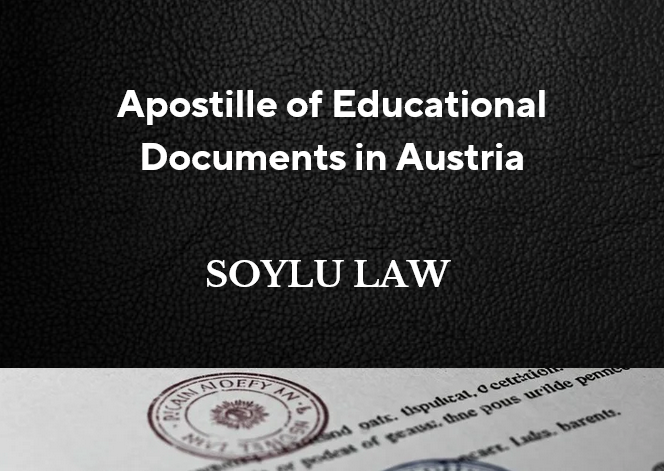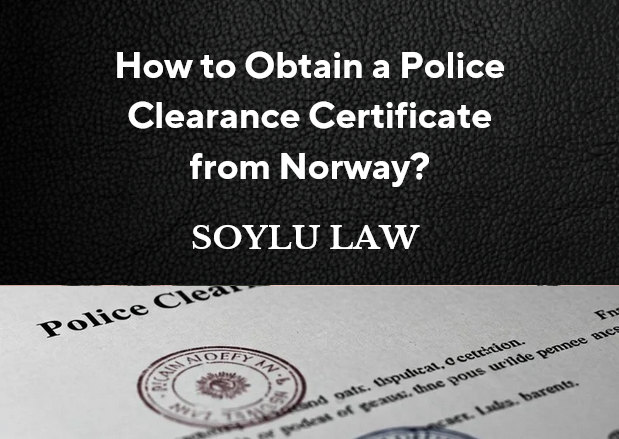Navigating international document recognition can be challenging, especially when dealing with official paperwork across borders. Austria’s apostille system provides a streamlined method for authenticating public documents for use in over 120 countries worldwide.
Understanding the proper procedures, competent authorities, and document requirements is essential for successful document legalization. Whether you need to authenticate educational certificates, legal papers, or personal documents, the Austrian apostille process follows specific protocols established under the Hague Convention.
In this article, we’ll explore the complete process of obtaining an apostille in Austria, from document preparation to final verification.
Introduction to Apostille Authentication
What is an Apostille and Its Purpose
An apostille is a specialized certificate that authenticates the origin of a public document. Its primary function is to verify the authenticity of signatures, the capacity of signatories, and the identity of seals on documents for international use.
Austria joined the Hague Convention on October 5, 1961, with the treaty entering into force on January 13, 1968. This international agreement significantly simplified the process of document authentication between member countries.
The apostille system eliminates the need for complex and time-consuming consular legalization procedures, making international document recognition more efficient and less costly.
International Recognition and Benefits
Documents with an Austrian apostille are legally recognized in over 120 countries that are members of the Hague Convention. This mutual recognition system saves considerable time and resources compared to traditional authentication methods.
The primary benefit of the apostille is its universal format and standardized procedure, creating a reliable system for cross-border document verification. Austrian citizens traveling, studying, or conducting business abroad frequently rely on this system.
For non-member countries, consular legalization remains necessary as apostilles are not recognized in these jurisdictions.
Types of Documents Eligible for Apostille
Official Documents That Can Be Apostilled
Austrian trade register extracts and land register documents can be apostilled. These documents are commonly needed for international business transactions and property matters.
Documents issued or certified by notaries public qualify for apostille certification. This includes powers of attorney, testaments, and various legal declarations that require international recognition.
Court-issued documents including judgments, orders, and official court certificates can receive apostilles. These are frequently needed for international legal proceedings or recognition of court decisions abroad.
Educational and Personal Documents
Educational certificates from state and state-recognized institutions are eligible for apostilles. This includes university degrees, transcripts, matriculation certificates, and school records needed for study abroad programs.
Personal status documents such as birth certificates, marriage certificates, and death certificates can be apostilled. These documents are often required for immigration, overseas employment, or international marriage procedures.
Official translations by court interpreters can also receive apostilles when they need to be used in other Hague Convention countries.
Documents That Cannot Be Apostilled
- Trade contracts and private agreements between parties
- Standard commercial invoices and shipping documents
- Customs documents and related paperwork
- Diplomatic and consular documents issued by foreign missions
- Personal identification cards and non-official identity documents
Competent Authorities for Apostille in Austria
The Federal Ministry for Europe, Integration and Foreign Affairs
The Federal Ministry handles documents issued by high-level government entities. This includes papers from the Federal President, federal government departments, Constitutional Court, and Supreme Court.
The Ministry also processes documents from the Court of Audit and other federal institutions that require international authentication. Their apostille services maintain the highest level of security and verification.
Provincial and Judicial Authorities
Presidents of civil courts of first instance (excluding specialized courts in Vienna) authenticate documents issued within their judicial jurisdiction. This includes court documents, public prosecutor’s documents, and notary certifications.
Provincial governors and provincial governments handle documents issued within their respective provinces in execution of official federal duties. They maintain regional offices where citizens can submit documents for apostille certification.
Fees and Processing Information
Standard fees for judicial and notarial documents amount to €13.70 per apostille. Additional administrative costs may apply depending on the specific service and urgency of the request.
Processing times vary between authorities, typically ranging from 3-10 business days for standard service. Express processing options may be available for urgent cases at additional cost.
The Austrian Apostille Process: Step by Step
Document Preparation Requirements
Ensure all documents are original or properly certified copies issued by competent authorities. Photocopies without official certification cannot be apostilled.
Verify that documents contain accurate information and are in good condition without alterations. Documents with unauthorized modifications or illegible sections will be rejected.
If documents are in a language other than German, they may require certified translation before or after the apostille process, depending on the requirements of the destination country.
Submission Procedures
Visit the appropriate authority based on document type with your identification and the original documents. In-person submission is the traditional method but mail services may be available for certain document types.
Complete any required application forms and provide information about the intended use and destination country. Be prepared to pay the processing fee at the time of submission.
You may need to provide a return address or arrange for collection of the apostilled documents. Some authorities offer courier services for an additional fee.
Verification and Collection
The apostille in Austria appears as a square stamp in German with “Apostille” heading and reference to the Hague Convention in French. It must measure at least 9 centimeters on each side.
The certificate will include details about the signatory, their capacity, and the seal or stamp on the original document. Each apostille receives a unique identifier number for verification purposes.
- Verify the apostille contains a handwritten signature of an authorized official
- Check for the official seal and hologram security feature
- Confirm all information matches the original document details
- Ensure the apostille is securely attached to your document
- Keep digital or physical copies for your records
E-Apostille in Austria
Digital Authentication Development
Austria introduced e-apostille capabilities on July 1, 2017, through an amendment to the Apostille Law. This modernization allows for digital signing certification of electronically issued documents.
The e-apostille system maintains the same legal value as traditional paper apostilles. Both formats are recognized equally under the Hague Convention framework, providing flexibility in document processing.
Digital authentication requires documents with embedded data in digital signature or seal certificates. The system streamlines the process for electronically generated documents that can be transmitted without media disruption.
Limitations and International Recognition
Not all Hague Convention countries currently issue or accept e-apostilles. It’s advisable to verify acceptance with authorities in the destination country before requesting a digital authentication.
Technical and organizational requirements must be met for e-apostille issuance. The system requires compatible digital infrastructure on both the issuing and receiving ends.
E-apostilles offer advantages in processing speed and convenience, but may not be suitable for all document types or destinations due to varying levels of technological adoption.
Special Cases and Exemptions
Multilingual Documents and CIEC Convention
Austrian civil status documents issued under the CIEC Convention (International Commission on Civil Status) using international multilingual models are exempt from any legalization. These standardized formats are directly recognized across member states.
CIEC Convention contracting states include many European countries such as Germany, France, Italy, and Spain. The convention specifically covers birth, marriage, and death certificates in multilingual formats.
Certificates of marriageability issued according to the Munich CIEC Convention of 1980 also enjoy simplified recognition. These documents are particularly relevant for international marriages and family matters.
EU Regulation 2016/1191
EU Regulation 2016/1191 simplifies the circulation of certain public documents between EU Member States. This regulation eliminates apostille requirements for specific document types within the European Union.
The regulation covers birth and death certificates, marriage documents, partnership papers, and residence confirmations. It introduced multilingual standard forms that further reduce translation requirements.
This EU-wide simplification took effect in 2019, creating a more efficient system for document exchange among the 27 member states.
Bilateral Agreements
Austria maintains bilateral agreements with several countries that provide exemption from legalization requirements. These diplomatic arrangements allow for direct document recognition without apostille or consular certification.
Countries with bilateral exemption agreements include Belgium, Bosnia and Herzegovina, Bulgaria, Croatia, and several other European nations. The scope of exemption varies by country and document type.
Documents covered by these agreements can be used directly in the partner country without additional authentication steps, significantly streamlining administrative procedures.
How Soylu Law Can Assist You
Professional Apostille and Document Services
Soylu Law provides comprehensive assistance with apostille and legalization procedures for all types of Austrian documents. Our team specializes in international document authentication and can navigate the complexities of cross-border paperwork requirements.
We offer expert guidance on document preparation, submission to appropriate authorities, and verification of completed apostilles. Our services include document review to ensure all papers meet the strict requirements for international recognition.
For clients unable to handle the process personally, we provide full representation services from document collection to delivery of completed apostilles. Our expertise in international legal frameworks ensures efficient processing and compliance with all regulatory requirements.
We regularly assist both individuals and businesses with document legalization needs and maintain strong working relationships with relevant Austrian authorities. For more information about our apostille and document authentication services, please contact our office for a consultation.
For more help or consultation on this topic, you can contact us.



